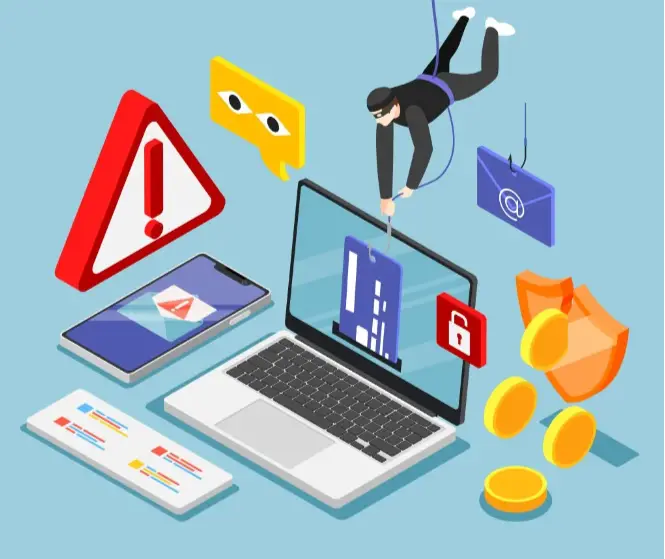ID.me Alert: Beware of ID.me
In today’s digital world, ID verification services such as ID.me are really important. They help you prove who you are online, making it easier to access important services and benefits. But, because these services are popular, bad people are trying to cheat others by tricking them on platforms like ID.me.
This article will explore the growing issue of ID.me scams, explaining how they operate and, most importantly, providing tips on how to stay safe. As identity theft and online fraud are becoming more common, it’s crucial to be aware and take steps to protect yourself.

Overview of ID.me scam?
The ID.me scam happens when bad people pretend to be the real ID.me service to trick others. They might send fake emails, texts, or make phone calls, trying to get people to share their passwords or personal information.
How the ID.me Scams Operate
First of, scammers send emails pretending to be ID.me security alerts, claiming that your ID.me account is at risk.
Secondly, they create urgency claiming the deadline to avoid suspension is approaching and states your account will be frozen if you don’t re-verify.
Furthermore, the scammers request for sensitive information from you such as Login credentials, Social Security Number, Bank account info, Credit card numbers.
In addition, you will be cajoled to download suspicious files allowing control of your system. Thereafter, the scammer causes you to enter codes sent to your phone number enabling account takeover.
Ways To Avoid Falling for the ID.me Scam
Certainly! Here’s an elaboration on each of the points:
- Never click links in unsolicited messages: Unsolicited messages, often referred to as spam or phishing emails, can contain harmful links that lead to malicious websites designed to steal personal information or install malware on your device. It’s crucial to never click on links or download attachments from these messages. Instead, verify the sender’s identity through other means and manually navigate to the website if necessary.
- Don’t provide info to incoming calls alleging to be ID.me: ID.me is a service that provides identity verification for various organizations. Scammers may impersonate ID.me representatives through phone calls, asking for personal information such as Social Security numbers or login credentials. It’s essential to be cautious and never provide sensitive information over the phone unless you initiated the call and are certain of the recipient’s identity.
- Verify custom URLs before entering login credentials: Phishing scams often involve fake websites that mimic legitimate ones to trick users into providing their login credentials. Before entering any sensitive information, always double-check the URL in the address bar to ensure it matches the legitimate website’s domain. Look for subtle variations or misspellings that could indicate a fraudulent site.
- Enable two-factor authentication as an extra layer of security: Two-factor authentication (2FA) adds an extra layer of security to your accounts by requiring not only a password but also a secondary form of verification, such as a code sent to your phone or generated by an authenticator app. By enabling 2FA, even if your password is compromised, unauthorized access to your accounts is significantly more difficult.
- Monitor accounts closely for unauthorized activity: Regularly monitoring your accounts for any suspicious or unauthorized activity is crucial for detecting potential security breaches early. This includes reviewing transaction history, checking login activity, and setting up alerts for unusual account behavior. Promptly reporting any unauthorized activity to the appropriate authorities or financial institutions can help mitigate potential damage and prevent further compromise of your accounts.
Final Thoughts:
ID.me offers an important service, but it can attract scammers who want to steal your identity. Be careful of fake emails, texts, or calls trying to trick you. Don’t click on suspicious links, give personal information to people you don’t know, or let anyone access your device from afar. If you get tricked, act fast to protect your identity and tell the authorities about the fraud before it’s too late. Share what you know about these scams to help others stay safe.
How To Avoid Online Scam
- Ensure that your software and operating systems are regularly updated to maintain optimal performance and security
- Exercise caution when installing software and applications
- Set up a program to block advertisements
- Select robust passwords for your accounts.
- It is essential to refrain from using pirated software
Also read:
Trustenely.com , Coinvaq.com
Mft-trade
Actionmarkets

